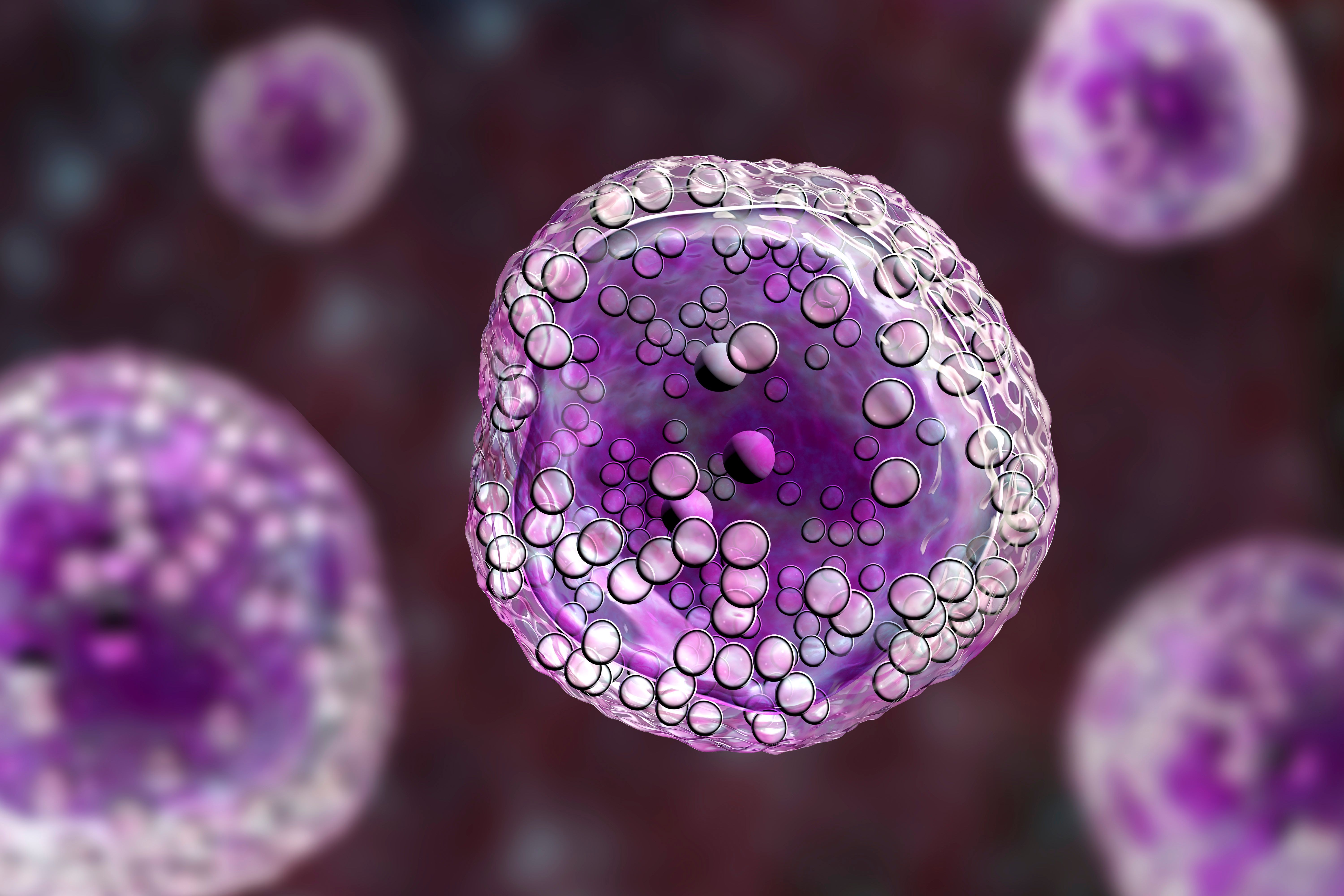FDA Grants Orphan Drug Designation to MB-105 for R/R T-Cell Lymphoma
MB-105, a first-in-class CD5-targeted CAR T-cell therapy, received FDA orphan drug designation for relapsed/refractory T-cell lymphoma.

- The FDA has granted MB-105 orphan drug designation for the treatment of relapsed/refractory CD5-positive T-cell lymphoma.
- MB-105 is March Biosciences’ first-in-class CD5-targeted chimeric antigen receptor(CAR) T-cell therapy.
- Phase 2 development of MB-105 is planned to advance in a clinical trial in early 2025.
The FDA has granted orphan drug designation to MB-105, a first-in-class CD5-targeted CAR T-cell therapy, for the treatment of patients with relapsed/refractory CD5-positive T-cell lymphoma.1
MB-105 is currently in development for the treatment of CD5-positive hematologic malignancies, including T-cell lymphoma, T-cell acute lymphoblastic leukemia (ALL), chronic lymphocytic leukemia, and mantle cell lymphoma. The therapy utilizes a proprietary CAR design that allows for the selective targeting of malignant cells while preserving some normal T-cell function.
Currently, a phase 1 clinical trial (NCT03081910) is evaluating MB-105 in relapsed/refractory T-cell lymphoma and T-cell ALL. Preliminary results from the study suggest the agent elicits a 44% overall response rate among those with T-cell lymphoma.
Lymphoma cell: © Dr_Microbe - stock.adobe.com

“Beyond an important regulatory milestone, securing orphan drug designation for MB-105 from the FDA underscores the critical need for new therapeutic options for patients with T-cell lymphoma,” Sarah Hein, co-founder and chief executive officer of March Biosciences, said in a press release. “Currently, patients with treatment-resistant or recurrent T-cell cancers face an extremely poor prognosis. The MB-105 phase 1 trial has shown promising safety and efficacy signals in patients with relapsed/refractory T-cell lymphoma. This designation further validates our development strategy as we prepare to initiate our phase 2 clinical trial in early 2025.”
In another first-in-human phase 1 study, MB-105 was evaluated for the treatment of patients with T-cell leukemia or lymphoma.2 The primary end point of the study was to evaluate the dose-limiting toxicity (DLT) rate, and the secondary end point was overall response rate.
The trial evaluated 3 dose levels of autologous and allogeneic CD5.CAR/28zeta CAR T cells (groups A and B) administered with cyclophosphamide and fludarabine. If patients experience a partial response or stable disease and complete the 6-week toxicity evaluation without DLT or infections, they may receive up to 3 additional infusions.
Continued eligibility for these additional infusions depend on clinical response and safety. If a complete response is achieved, patients are recommended to proceed to allogeneic hematopoietic stem cell transplantation.
After dose escalation, the trial expanded to treat up to 6 more patients (2 cohorts) at the maximum tolerated dose in each group to collect further safety and preliminary efficacy data.
Looking at data from a cohort of patients with mature T-cell lymphoma (n = 17), CD5 CAR T cells were successfully manufactured for 13 out of 14 attempted lines (93%) and administered to 9 (69%) patients.3 In addition to the ORR of 44%, complete responses were seen in 2 patients.
For safety, cytopenias were the most common grade 3 or higher adverse events. No grade 3 or higher cytokine release syndrome or neurologic events were reported, and 2 patients died during the immediate toxicity evaluation period due to rapidly progressive disease.
REFERENCES:
March Biosciences receives FDA orphan drug designation for MB-105, a first-in-class CD5 CAR-T cell therapy, for T-cell lymphoma. News release. March Biosciences. January 28, 2025. Accessed January 28, 2025. https://tinyurl.com/mwjfbbsa
Autologous T-cells expressing a second generation CAR for treatment of T-cell malignancies expressing CD5 antigen (MAGENTA). ClinicalTrials.gov. Updated September 27, 2024. Accessed January 28, 2025. https://www.clinicaltrials.gov/study/NCT03081910
Hill LC, Rouce RH, Wu MJ, et al. Antitumor efficacy and safety of unedited autologous CD5.CAR T cells in relapsed/refractory mature T-cell lymphomas. Blood. 2024;143(suppl 13):1231-1241. doi:10.1182/blood.2023022204







